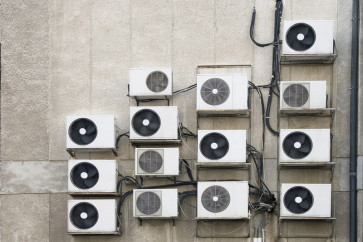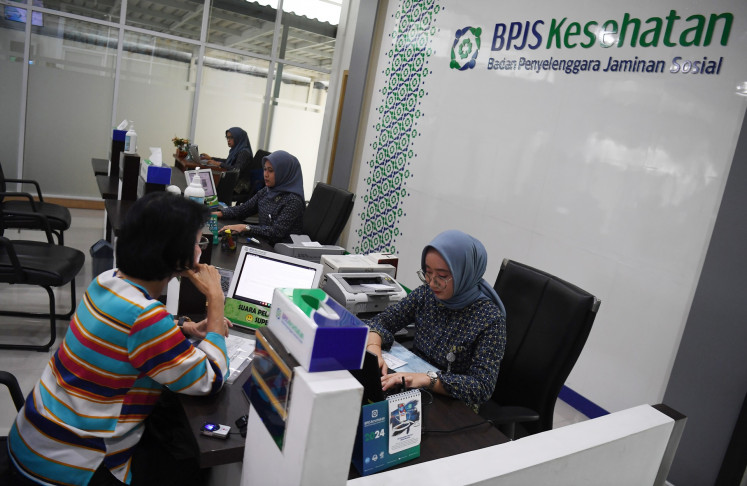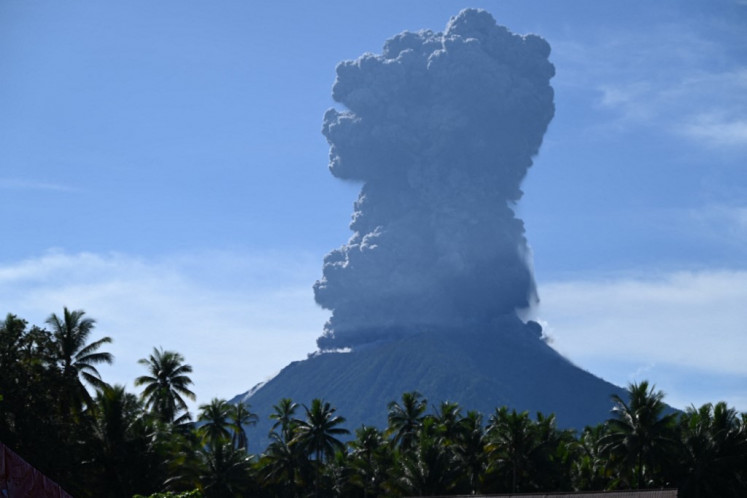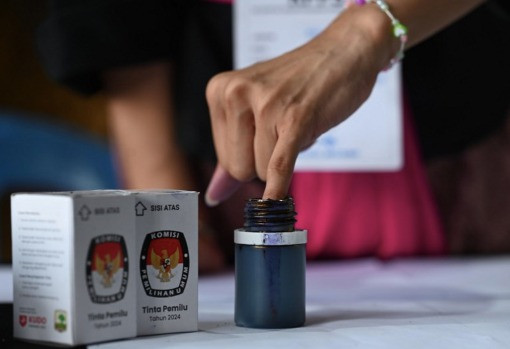Herd immunity in Jakarta a 'pipe dream', expert says
Change Size
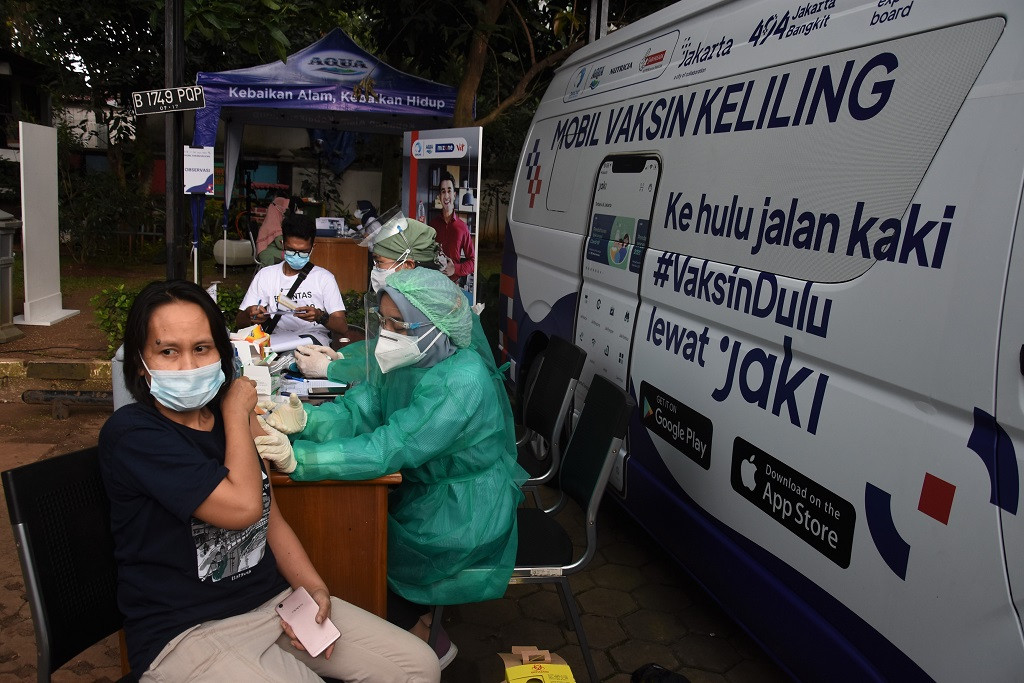
J
akarta has carried out an exemplary COVID-19 vaccination acceleration since President Joko “Jokowi” Widodo ordered the capital to inoculate 7.5 million out of 10.5 million residents before the end of this month in order to achieve “herd immunity”.
Jokowi did not specify whether the target was for the first or the second doses, but this accounts for slightly over 70 percent of Jakarta’s population -- a conventional threshold for herd immunity even though herd immunity means people need to be fully vaccinated.
The city had managed to administer the first doses to 7.5 million people by late July, a month earlier than expected, and the number grew to 9 million on Sunday, slightly over the target of 8.9 million.
To further slow down transmission as infections begin to trend downward, Jakarta had now added 2.2 million more people to the list of targeted recipients, Governor Anies Baswedan said on Instagram on Sunday.
Deputy Governor Ahmad Riza Patria is optimistic that Jakarta will soon reach herd immunity. But experts say Jakarta still has a long way to go, especially since fewer than 50 percent of the targeted recipients in the capital have been fully vaccinated.
Urban agglomeration problems and disparities in vaccination rates
Adding to the problem is that Jakarta residents only make up 60 percent of people receiving the first dose. The rest, about 3.7 million people, are not registered as Jakarta residents -- more than half of them are public and essential service workers who commute to work in Jakarta.
Kelapa Gading district head Darmawan said last week that only seven of the capital's 44 districts had vaccination rates above 60 percent if he counted only vaccine recipients who were registered residents.
Because mobility across Greater Jakarta is very high, Anies said the capital had to vaccinate everyone who engaged in daily activities in Jakarta regardless of their domicile. “Jakarta would never reach herd immunity if we only vaccinated registered residents,” he said.
Read also: Jakarta expedites jab drive as cases spike
This approach however has obscured vaccination rates in neighboring cities, which are struggling to increase their coverage. Jakarta satellite cities -- Depok, Bekasi and Bogor, which are under the jurisdiction of West Java, as well as Tangerang and South Tangerang in Banten -- have so far administered the first shots to only 30 percent of their target populations on average.
Deputy Depok Mayor Mohammad Idris said data murkiness would only exacerbate disparities in Greater Jakarta.
“Let’s say if Jakarta’s vaccination coverage reaches 80 percent, we still need to see where the recipients actually live. It could be that most of them are Depok residents. Vaccination data in agglomeration areas need special attention,” he said on Monday as reported by Kompas.com.
By that day, about 21.6 percent of eligible recipients had received at least one shot in Depok. But Idris said if health authorities included Jakarta residents who got their first jabs in Depok, the rate would be around 40 percent.
Pipe dream
Epidemiologist Dicky Budiman said herd immunity was “a pipe dream” for Jakarta considering that no available vaccine was 100 percent effective at protecting against infection -- even though they remain critical in reducing severe illness and death.
The two most common vaccines used in Jakarta -- Sinovac and AstraZeneca -- have efficacy rates of 65 and 70 percent respectively.
Making matters worse, a recent study conducted in China found that antibodies provided by the two-dose Sinovac regimen fade after six months, meaning that vaccinated people are likely to need booster shots.
Dicky said breakthrough infections and transmission could still happen among fully vaccinated individuals -- thus they could still pass the virus to others.
His argument is in line with Public Health England research that was published earlier this month and found evidence that fully vaccinated people may transmit the more contagious Delta variant just as easily as those who are not.
"It means that, even if 100 percent of Jakarta residents have been fully vaccinated, it does not guarantee that Jakarta will reach herd immunity," Dicky said.
New virus variants
Herd immunity occurs when enough people are immune to a disease -- either through vaccination or natural infection -- to make its spread unlikely.
Most estimates place the threshold at 70 percent of the population, but because of the Delta variant, experts, including Riris Ahmad from Gadjah Mada University, now estimate at least 85 percent of the population should be fully vaccinated. This makes up for the initial target recipients in Jakarta.
“However, that is with the assumption that the vaccine efficacy is 100 percent. Because we’re using Sinovac, which has 65 percent efficiency, the target should be higher,” Riris said.
Read also: Vaccine shortage jeopardizes government's 1 million a day vaccination target
Some foreign studies also suggested the Delta variant -- which became the dominant variant in Jakarta during the second surge of infections that devastated the city last month -- has reduced the efficacy of various vaccines.
Director of the Oxford vaccine group who led the team that created the AstraZeneca vaccine Andrew Pollard said the Delta variant had made herd immunity "impossible" and “mythical”, foreign media reported. Pollard said that herd immunity could not be achieved since the virus still infected vaccinated individuals and there might be another "variant which is even better at transmitting in vaccinated populations" in the future and thus there was no reason "to be making a vaccine program around herd immunity".
What's next for Jakarta?
Dicky said vaccination remained an important tool that could not be separated from other pandemic strategies like adequate surveillance and strict compliance with health rules.
He said if these measures were carried out effectively -- although Jakarta might not reach herd immunity in the foreseeable future -- the pandemic could still be brought under control by the end of next year.
“That is as long as no other more contagious variants emerge in the country.”
-- Rifki Nurfajri contributed to the story

